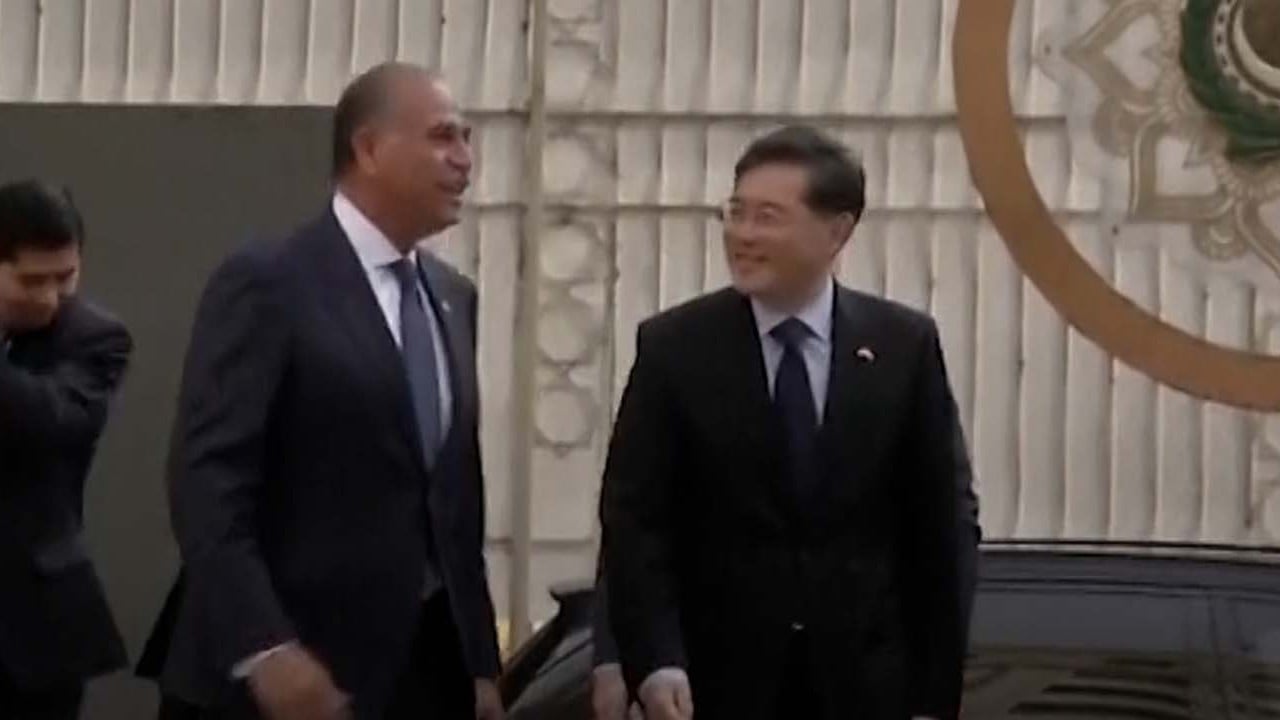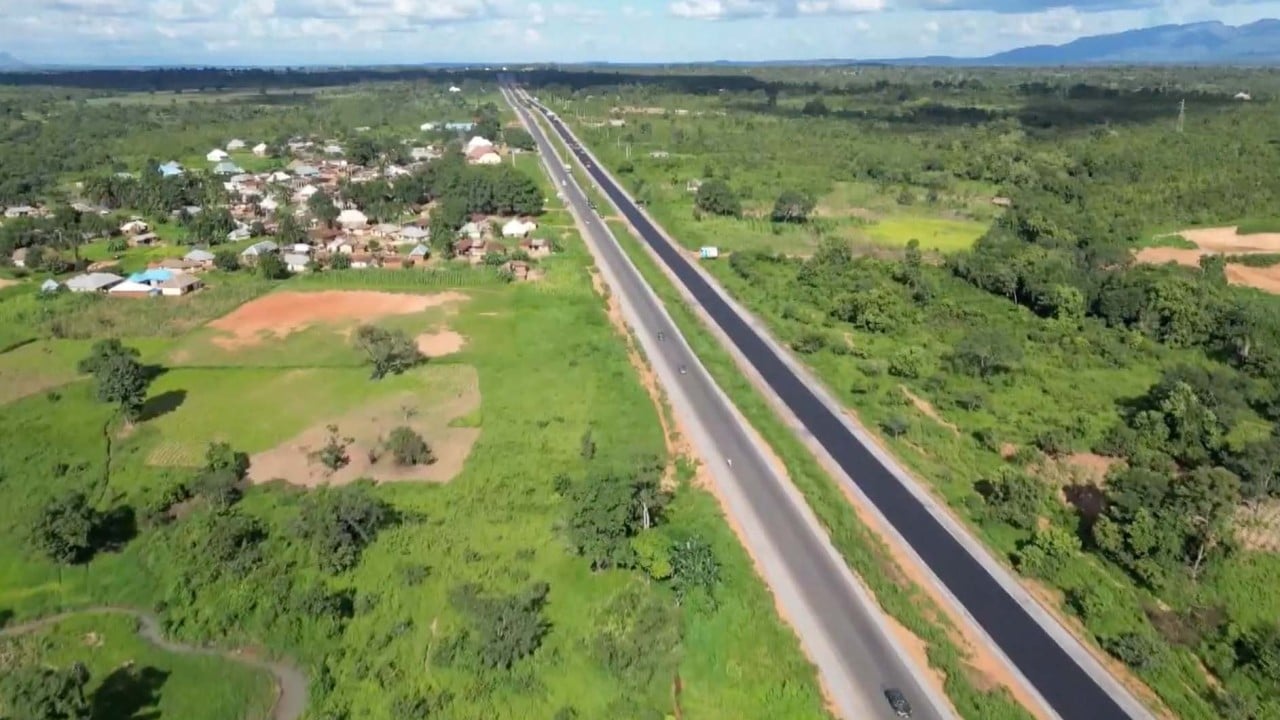
The high risks of Chinese players’ high-reward stakes in African mining
- Investors from China are tapping into the wealth of resources across the continent but in many regions, they are also in the path of violence
- Thousands of Chinese firms are operating in Africa and the profit motive remains high, analyst says
The mining town of Bambari in the Central African Republic has not seen peace for many decades.
The town, about 380km (236 miles) east of the capital of Bangui, is rich in diamonds and gold, attracting a growing number of Chinese investors looking to cash in on the area’s wealth.
The killings at the Chinese-owned mining site came just days after gunmen kidnapped three Chinese nationals in the country’s west near the border with Cameroon.
The CAR exemplifies the natural resources “curse” – its mineral wealth has been blamed for exacerbating the country’s decades-long civil war. Authorities suspect the rebel group Coalition of Patriots for Change (CPC) of being behind the attack but the CPC has denied responsibility and accused Russian mercenaries from the Wagner Group of orchestrating the violence.
The Chinese embassy in Bangui warned there were frequent security incidents in other provinces as well and urged Chinese citizens to avoid travelling outside the capital.
“Please evacuate Chinese citizens in areas other than Bangui, the capital of Central Africa,” the embassy said on March 19.
Alarms have also been raised by Chinese embassies in Nigeria, the Democratic Republic of the Congo and South Africa over the increased risk of kidnap, assault and death.
In Nigeria, Africa’s most populous nation, gunmen attacked a Chinese-operated mining site in June last year. The country is struggling to tame insecurity, exacerbated by Boko Haram’s Islamist militancy in the northeast.
To the southeast in the DRC, five Chinese nationals were kidnapped by gunmen at a gold mine in South Kivu in November 2021. Congolese officials said last year that the five had been released, but did not disclose whether a ransom had been paid.
Kivu and the neighbouring province of Ituri are home to a massive amount of minerals, including diamonds, coltan and gold, which has attracted Chinese companies and small-scale Chinese miners.
They are also areas where hundreds of militia members are fighting to control mineral resources and land.
The dangers prompted the Chinese embassy in Kinshasa to warn last week about a severe security situation. It said the Congolese government forces and the rebel M23, or March 23 Movement, continued to fight fiercely in the eastern region of the Congo. “Please expedite the evacuation of Chinese citizens in high-risk areas,” it said.
Lina Benabdallah, a China-Africa specialist at Wake Forest University and a visiting fellow at the Centre for African Studies at Harvard University, said the rise in attacks against Chinese nationals abroad posed a serious challenge for Beijing as it tried to balance its rising influence abroad with maintaining the safety of its nationals, interests and businesses.
“The situation in CAR is alarming indeed ... as it puts into question a fundamental and core interest of Chinese foreign policymakers, the safety of Chinese nationals abroad,” Benabdallah said.
According to Paul Nantulya, a research associate at the Africa Centre for Strategic Studies at Washington’s National Defence University, Chinese state-owned enterprises (SOEs) had a very high risk tolerance and hence many had invested in very risky regions.
“Indeed, the Chinese government readily admits that most of its SOEs operate in ‘medium risk’ to ‘high risk’ environments, accounting in part for the exposure of Chinese personnel and assets to security risks as well as the growth of the overseas Chinese security contracting industry,” Nantulya said.
He said some upswings of violence against Chinese interests were targeted at the perceived advantages of Chinese companies over their local counterparts stemming from their access to capital and credit, and their ability to undercut local competitors.
However, Nantulya said the threats were unlikely to affect investments in many African countries associated with the Belt and Road Initiative, China’s massive overseas infrastructure drive.
“The trends show that Chinese SOEs continue to find unstable environments like the DRC, South Sudan and Central African Republic quite lucrative,” he said.
“They tend to have what I would call a ‘high risk, high reward’ mentality and security threats are built into the Chinese models of business consulting, contracting, development and growth.”
Kamala Harris to visit Africa in latest US outreach
Nantulya said there were more than 10,000 Chinese firms operating in Africa – both state owned and private – with an asset portfolio of US$2 trillion.
In 2021, Africa overtook Asia as the largest market for Chinese overseas construction, where one out of every three construction projects was being built by Chinese firms and one out of five financed by a Chinese policy bank, according to Nantulya.
“You don’t let go of such holdings, even if violence ticks up,” Nantulya said.
“Yet, we have seen that China’s [belt and road] investments continue to grow, even if they have become more targeted and private-sector oriented. The profit motive remains very high.”
How Ukraine war has turned Africa into a geopolitical battleground
Cullen Hendrix, senior fellow at the Peterson Institute for International Economics, said Chinese nationals had a lot of exposure since they were involved directly in mining and infrastructure projects all across the continent, often working in areas far from cities and in extremely challenging security environments.
“This is especially the case with resources like gold, which are considered lootable and often targeted by armed groups seeking to enrich themselves or fund their war efforts,” Hendrix said.
He said one Chinese national described Chinese targets as “sweet pastry” – perceived as having lots of cash on hand or being backed by international firms willing to pay big ransoms.
Also, Hendrix said, Chinese development projects were not always viewed positively by local populations, who may view Chinese management as exploitative or unresponsive to poor working conditions.
Why Chinese players are taking private stakes in Africa’s new megaprojects
Andreas Velthuizen, a professor specialising in peace, conflict and security studies at the University of South Africa, said it was a good idea if the investigators were invited in by legitimate state authorities.
“These countries have an enormous crime problem and need any help they can get,” Velthuizen said.
Nantulya said China had public security and law enforcement engagements with no fewer than 40 African countries.
In Uganda for instance, Chinese commandos were deployed in January to pursue members of a suspected Chinese gang in coordination with Ugandan commandos.
Nantulya said Uganda also deployed its military to protect Chinese economic assets around the country, a model China also used in Gwadar, Pakistan.
Ethiopia also signed a cooperation framework with China’s Ministry of Public Security to protect “major Chinese-assisted projects in the country” such as the Addis Ababa-Djibouti Standard Gauge Railway.
In neighbouring Kenya, the government and its Chinese partners worked together to set up an elite Railway Police Force to protect the Mombasa-Nairobi Standard Gauge Railway.
About 2,000 African police and law enforcement personnel had received training in Chinese police schools between 2015 and 2020, Nantulya said.



